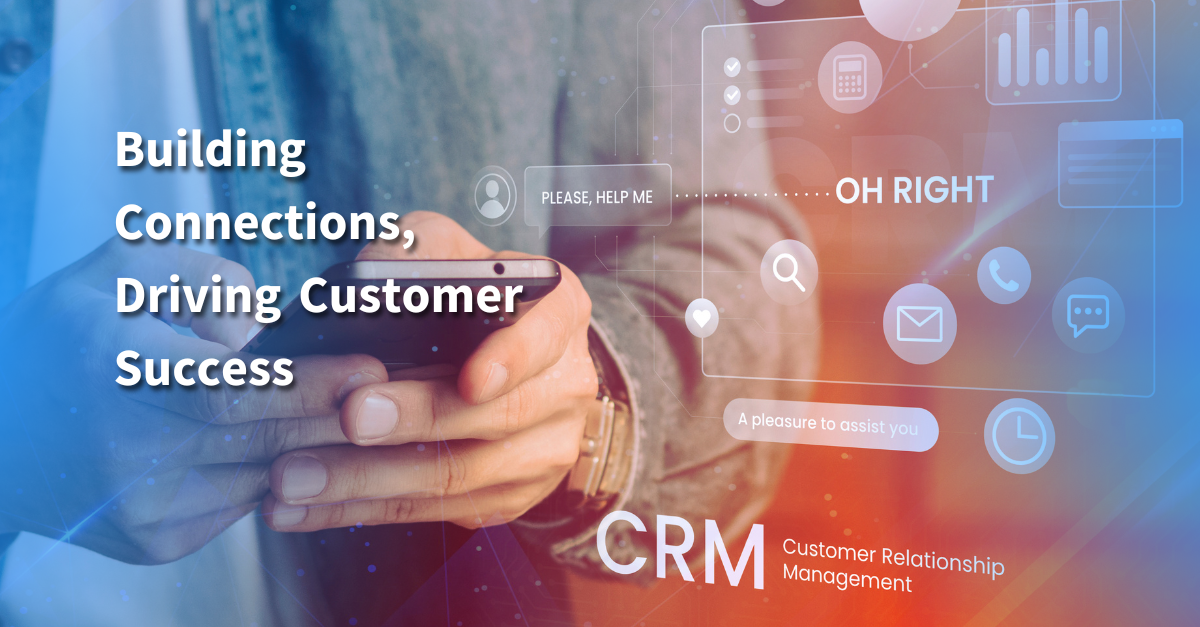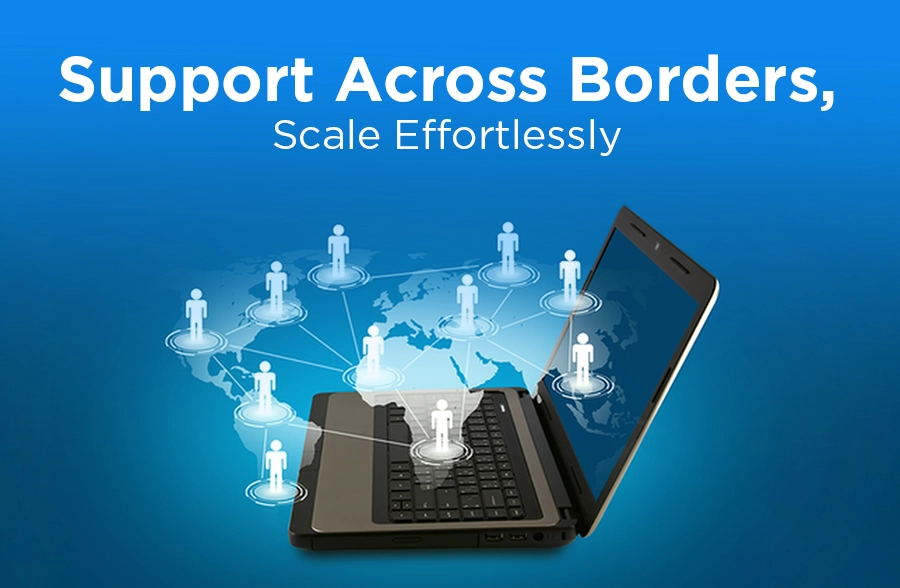Schedule a FREE call with our outsourcing expert now and get a precise quotation that meets your requirements. Don't wait - get started today!
For small and medium enterprises (SMEs), Customer Relationship Management (CRM) is a critical strategy for growth and sustainability. The main goal of CRM is simple: to make each customer interaction meaningful, efficient, and focused on meeting customer needs. It’s more than just managing contacts or customer histories; CRM is about building trust and loyalty through consistent and personalized service.
Businesses that implement CRM strategies often significantly impact their bottom line. According to recent studies, organizations that prioritize customer experience drive 4-8% higher revenues than those that don’t. These numbers show that effective CRM can boost profits while reducing customer churn, helping SMEs create valuable, long-term relationships without the constant need to acquire new customers.
Key Objectives of Customer Relationship Management
Here are the objectives of customer relationship management, highlighting how they help businesses like yours deliver satisfaction, streamline operations, and improve growth through lasting customer connections.
1. Enhance Customer Satisfaction
A core CRM objective is to improve customer satisfaction. Businesses can personalize their services by using CRM tools, making customers feel valued. Happy customers are more likely to stay loyal, reducing churn and promoting positive word-of-mouth.
- Improved Customer Satisfaction: CRM systems collect data on customer preferences, allowing businesses to cater to specific needs and improve experiences.
- Increased Customer Satisfaction: Customers who feel heard develop a positive view of the business. This sense of connection often leads to repeat business.
CRM systems ensure that all customer interactions align with their needs, leading to improved and increased satisfaction.
2. Foster Customer Retention
Retaining existing customers costs less than acquiring new ones. CRM helps businesses identify customers’ pain points and address them promptly. With effective customer retention, SMEs can maximize the lifetime value of each customer and improve profitability.
- Customer Retention Benefits: Businesses can secure steady revenue streams by focusing on current customers without constantly investing in new client acquisition efforts.
- Insights from CRM Software: CRM tools track customer history, helping businesses understand behaviors and predict future needs.
By focusing on customer retention, SMEs can build strong, long-term relationships with their audience.
3. Streamline Customer Service
Effective customer service is a significant CRM objective. CRM solutions enable quick, consistent responses, improving overall service quality. Customers are more likely to trust and recommend the business when customer service is seamless.
- CRM in Customer Service: With CRM, customer service agents can access complete interaction histories, enabling faster issue resolution.
- Enhanced Responsiveness: CRM systems automate routine tasks, reducing response times and enabling teams to focus on complex customer inquiries.
Streamlined customer service creates a positive impression and can greatly influence customer loyalty.
4. Increase Sales and Revenue
Another key objective of CRM is to drive sales growth. CRM tools help sales teams understand customer needs, allowing them to offer solutions that align with those needs. This approach results in higher sales and satisfied customers.
- Boosting Sales Process Efficiency: CRM systems organize customer data, helping sales teams identify potential sales opportunities.
- Empowering the Sales Team: With insights from CRM software, sales representatives can make data-driven decisions, boosting revenue.
By streamlining the sales process, CRM enables SMEs to achieve better sales outcomes without increasing resources.
5. Personalize Customer Interactions
Personalization is an effective way to build stronger connections with customers. CRM allows businesses to personalize interactions, ensuring each communication feels relevant.
- Creating Unique Experiences: By understanding customer preferences, CRM systems help create personalized experiences, which can increase customer satisfaction.
- Building Loyalty through Personalization: Personalized communication shows customers that the business values their individual needs.
Personalized interactions can enhance customer loyalty, a crucial advantage for SMEs looking to stand out in a competitive market.
6. Streamline Marketing Campaigns
CRM also supports effective marketing. Businesses can increase engagement and improve conversion rates by targeting campaigns based on customer behavior and preferences.
- Improved Campaign Accuracy: CRM systems allow businesses to segment customers, ensuring marketing efforts reach the right audience.
- Increased Engagement: Targeted marketing aligns with customer interests, increasing the likelihood of positive responses.
CRM-based marketing boosts the chances of reaching engaged customers, which benefits SMEs looking to optimize resources.
7. Enhance Customer Data Management
Managing customer data efficiently is essential for effective CRM. CRM software organizes and analyzes data, offering actionable insights that help decision-making.
- Centralized Data Management: CRM tools store all customer data in one place, making it easy for teams to access.
- Data-Driven Decisions: Analyzing customer data allows businesses to identify trends, helping to refine marketing and sales strategies.
Effective data management empowers SMEs to make informed choices that align with customer needs and business goals.
8. Improve Communication Across Teams
CRM systems enhance communication within a business. Sales, marketing, and customer service teams can access customer data, ensuring consistent messaging and a cohesive approach.
- Unified Access to Information: CRM provides a centralized data hub, allowing teams to view real-time customer information.
- Coordinated Efforts: Shared access helps teams coordinate responses and campaigns, improving customer experience.
By fostering teamwork, CRM helps SMEs ensure a seamless customer experience.
9. Enhance Customer Feedback Management
Collecting and acting on customer feedback is key to improvement. CRM systems help track and organize feedback, helping businesses address concerns promptly.
- Feedback Tracking: CRM tools record customer input, making it easy to identify recurring issues and areas for improvement.
- Customer-Centric Approach: Addressing feedback creates a customer-focused culture, which can increase loyalty.
Listening to feedback enhances service quality, which is especially valuable for SMEs aiming to build long-lasting customer relationships.
10. Gain Insight for Business Growth
CRM provides insights that help businesses plan for growth. By analyzing customer data, businesses can identify trends, allowing for informed decisions on expansion or product offerings.
- Identifying Growth Opportunities: CRM data reveals patterns in customer behavior, helping SMEs spot potential new markets.
- Supporting Strategic Planning: With a clear view of customer needs, businesses can tailor their strategies for maximum impact.
Using CRM insights enables SMEs to grow with confidence, ensuring they meet evolving customer demands.
Magellan Solutions: Your Partner in Effective CRM
Unlock your business potential with Magellan Solutions! Book your FREE 60-minute business consultation today to explore how our CRM expertise can help you build strong customer relationships—NO COMMITMENTS, just results-driven insights tailored to your growth! Let’s strategize to take your customer relationships to the next level.













